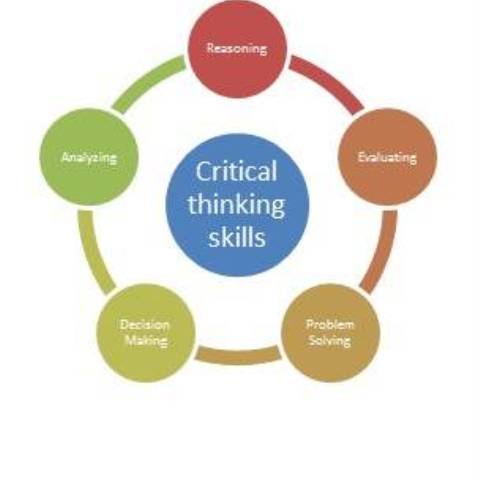

Recently, Math Department Chairman Chad Woods and I had the privilege of, once again, attending the AP Annual Conference (APAC) in Austin, Texas. At the conference, we interacted with fellow AP Calculus and AP Statistics instructors from all over the world. Many of these teachers are leading contributors to their respective fields, and we gained valuable information that will increase our effectiveness in the classroom.
Though certainly not an exhaustive list, here are the Top 4 lessons that we learned:
1. We must continue to help students develop the capacity to think critically and reason logically.
The AP Calculus Exams (both AB & BC) and the AP Statistics Exam are all designed to reward students for higher-order thinking skills. While it may be true that these tests were once simply a measure of skills, the newly designed AP curriculum places the most emphasis on using those skills to solve problems. Justification and Analysis were two concepts that came up frequently during our discussions. We took great pride in knowing that thinking critically and reasoning logically are the two main foci of our mathematics department here at Darlington. While this is our overriding theme in all we do, we will continue to strive for more efficient and effective ways to foster those abilities in our students.
2. We need a strong vertical alignment of curricula to prepare students for the rigor that the AP program demands.
So many of the teachers and professors we interacted with stressed the importance of preparing students early on for success in higher-level math classes (both AP and college-level). While we want students to learn to think critically, they must have a strong foundation on which to build. This comes through developing a strong number sense in the lower grades and continuing to work with those skills in Pre-AP classes from sixth to tenth grades.
3. We must seek new approaches for teaching math from multiple perspectives – graphically, numerically, analytically and in writing.
Most students who come into my classroom for AP Calculus usually have a good understanding of ONE of these four “lenses” (usually, the Analytic/Algebraic). We want them to be able to attack a problem differently from time to time. Our math department teachers recently took the “new” version of the SAT, putting ourselves in the students’ shoes to see what changes have been made. There are problems that were simply UNSOLVABLE if they were approached from an analytic perspective. However, these same problems were rather easy when viewed graphically or numerically. Furthermore, students’ abilities to articulate a solution in writing are more crucial now than ever before.
4. Making math fun is serious business.
Several different presenters throughout the week offered ways to teach concepts that students thought were “fun.” I must say that my attitude toward “fun” in the math classroom has usually been to not have it. “It’s all fun to me!” has been my response to students in the past. However, I saw many times over how getting students up and moving and interacting with each other while exploring concepts can be a valuable asset to their understanding and confidence in what they know and are able to do.
It is such an incredible opportunity for growth each and every time we attend these conferences and/or workshops. We look forward to implementing this information in our classes during this academic year and as we make plans for the future. It is a blessing to teach at an institution that values professional development and lifelong learning!